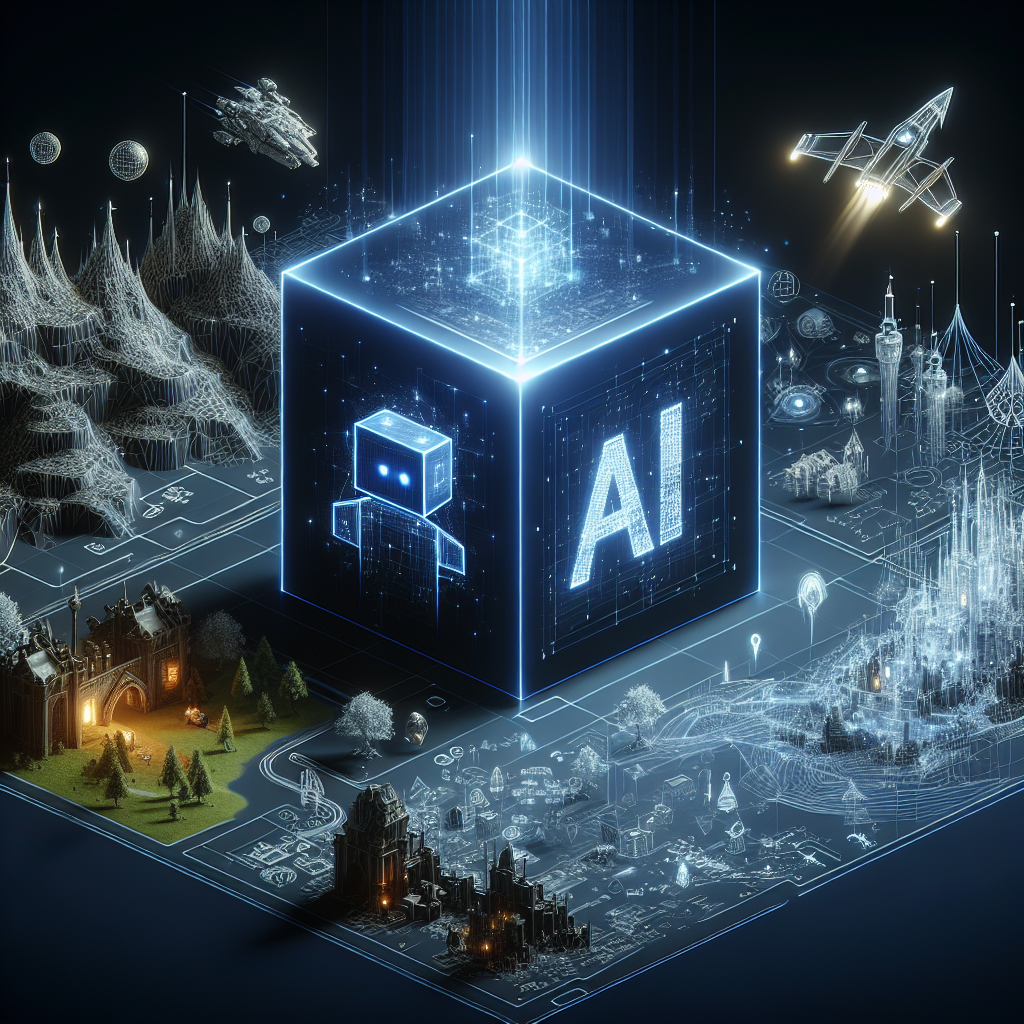Artificial intelligence (AI) has become an increasingly important tool in game design, allowing developers to create more immersive and engaging worlds for players to explore. By incorporating AI into game design, developers can create more dynamic and responsive environments, as well as more intelligent non-player characters (NPCs) that can react to player actions in more realistic ways.
One of the key ways in which AI is used in game design is in creating more realistic and believable NPCs. In traditional game design, NPCs are often limited in their behavior and interactions with the player, which can make the game world feel static and unengaging. By using AI techniques such as machine learning and natural language processing, developers can create NPCs that can adapt and learn from player actions, making the game world feel more alive and dynamic.
AI can also be used to create more realistic and challenging opponents for players to face in the game. By analyzing player behavior and adjusting the difficulty level of the game accordingly, developers can create a more engaging and rewarding experience for players. AI can also be used to create more realistic and unpredictable enemy behavior, making the game more challenging and exciting for players.
Another way in which AI is used in game design is in creating more immersive and dynamic game worlds. By using AI techniques such as procedural generation, developers can create vast and detailed game worlds that feel alive and constantly changing. Procedural generation allows developers to create complex and diverse environments that can be explored by players, making the game world feel more expansive and immersive.
AI can also be used to create more dynamic and responsive game environments. By using AI algorithms to analyze player behavior and adjust the game world accordingly, developers can create environments that react to player actions in real-time. This can create a more immersive and engaging experience for players, as the game world feels more alive and responsive to their actions.
In addition to creating more immersive game worlds, AI can also be used to enhance the overall game experience for players. By using AI algorithms to analyze player behavior and preferences, developers can create personalized experiences for each player, tailoring the game to their individual preferences and play style. This can create a more engaging and satisfying experience for players, as the game feels more tailored to their needs and desires.
Overall, AI has the potential to revolutionize the way games are designed and played, creating more immersive and engaging worlds for players to explore. By incorporating AI into game design, developers can create more dynamic and responsive environments, as well as more intelligent NPCs and opponents that can react to player actions in more realistic ways. AI can also be used to create more immersive and dynamic game worlds, enhancing the overall game experience for players and creating a more engaging and rewarding experience.
FAQs:
Q: How does AI enhance game design?
A: AI enhances game design by creating more immersive and engaging worlds for players to explore. By using AI techniques such as machine learning and procedural generation, developers can create more dynamic and responsive environments, as well as more intelligent NPCs and opponents that can react to player actions in more realistic ways.
Q: What are some examples of AI in game design?
A: Some examples of AI in game design include creating more realistic and believable NPCs, creating more challenging opponents for players to face, creating more immersive and dynamic game worlds, and enhancing the overall game experience for players by analyzing player behavior and preferences.
Q: How can developers incorporate AI into their game design process?
A: Developers can incorporate AI into their game design process by using AI techniques such as machine learning, natural language processing, and procedural generation to create more dynamic and responsive environments, as well as more intelligent NPCs and opponents. Developers can also use AI algorithms to analyze player behavior and preferences, creating personalized experiences for each player.
Q: What are the benefits of using AI in game design?
A: Some benefits of using AI in game design include creating more immersive and engaging worlds for players to explore, creating more dynamic and responsive environments, creating more intelligent NPCs and opponents, and enhancing the overall game experience for players by analyzing player behavior and preferences.

